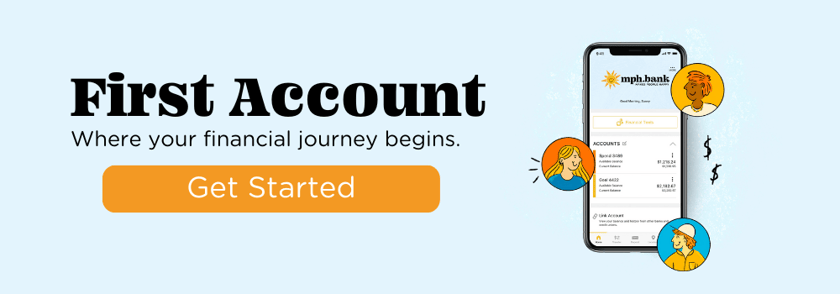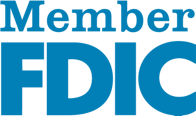Whether you're a young adult taking control of your finances or someone seeking a more organized approach to managing your money, venturing into the world of banking for the first time can be empowering yet a bit overwhelming. This beginner's guide is designed to demystify the process, offering clear insights and step-by-step guidance to help you make informed decisions as you embark on this significant financial milestone. From understanding the different types of accounts available to deciphering complex banking terminology, this guide aims to equip you with the knowledge necessary to confidently open your first bank account and kickstart your financial journey on the right track.
Related Article: 10 Best Bank Account Features for Students
Understanding the Importance of a Bank Account
Opening a bank account is an important step towards financial independence and security. A bank account allows you to safely store your money, make transactions, and build a relationship with a financial institution. It provides a secure place to keep your funds, reducing the risk of loss or theft. Additionally, having a bank account enables you to access a wide range of financial services such as online banking, mobile banking, and ATM services. It also allows you to establish a credit history, which can be beneficial when applying for loans or mortgages in the future.
By having a bank account, you can easily manage your finances, track your spending, and set up automatic payments or direct deposits. It provides a convenient way to pay bills, make purchases, and transfer money to family and friends. Moreover, having a bank account can help you develop good financial habits, such as budgeting and saving. It provides a platform for you to set financial goals and work towards achieving them. Overall, a bank account is an essential tool for managing your money effectively and efficiently.
Choosing the Right Type of Bank Account
When opening your first bank account, it's important to choose the right type of account that suits your needs and financial goals. There are various types of bank accounts available, each with its own features and benefits. The most common types of bank accounts include checking accounts, savings accounts, and money market accounts.
A checking account is designed for everyday transactions. It allows you to deposit and withdraw money, write checks, and use a debit card for purchases. It's suitable for managing your day-to-day expenses and offers easy access to your funds. On the other hand, a savings account is ideal for long-term savings goals. It typically earns interest on the deposited amount, helping your money grow over time. A savings account is a great option for building an emergency fund or saving for a specific purpose, such as a vacation or down payment on a house.
Another option to consider is a money market account. It combines features of both checking and savings accounts. It offers a higher interest rate than a traditional savings account and provides limited check-writing abilities. Money market accounts are best suited for individuals who want to earn higher interest rates while maintaining some liquidity.
Before choosing a bank account, consider your financial needs, goals, and preferences. Research different banks and compare their account offerings, fees, and interest rates. Take into account any additional services or perks that may be important to you, such as online banking, mobile apps, or ATM access. By selecting the right type of bank account, you can ensure that it aligns with your financial objectives and helps you make the most of your money.
Gathering the Necessary Documents
To open your first bank account, you will need to gather certain documents and identification. The exact requirements may vary depending on the bank and the type of account you choose, but generally, you will need the following:
1. Proof of Identity
This can include a valid passport, driver's license, or government-issued identification card. Make sure the document is current and not expired.
2. Social Security Number
In some cases, you may be required to provide your Social Security number or Individual Taxpayer Identification Number (ITIN). This is to comply with anti-money laundering regulations and tax reporting requirements.
3. Proof of Address
You will need to provide a document that verifies your residential address, such as a utility bill, bank statement, or lease agreement. The document should be recent and in your name.
4. Initial Deposit
Some banks may require an initial deposit to open the account. The amount can vary depending on the type of account you choose.
It's important to contact the bank or visit their website to get a complete list of the required documents and any additional information. Make sure to bring all the necessary documents with you when visiting the bank to ensure a smooth account opening process.
Opening Your First Bank Account
Once you have gathered all the necessary documents, you are ready to open your first bank account. Here are the general steps involved in the process:
1. Research and Choose a Bank
Consider factors such as the bank's reputation, fees, customer service, and account offerings. Select a bank that aligns with your needs and preferences.
2. Visit the Bank
Schedule an appointment or visit the bank during their operating hours. Bring all the required documents and identification with you.
3. Speak with a Bank Representative
Inform the bank representative that you would like to open a new bank account. They will guide you through the process and assist you in choosing the right account for your needs.
4. Complete the Application
Fill out the necessary application forms provided by the bank. Provide accurate and up-to-date information.
5. Deposit Funds
If required, make the initial deposit to fund your new account. The bank representative will inform you of the minimum deposit requirement, if applicable.
6. Review and Sign the Terms and Conditions
Carefully read the terms and conditions of the account. Seek clarification on any aspects you don't understand. Once you are satisfied, sign the documents.
7. Receive Your Account Information
The bank will provide you with your account number, debit card (if applicable), and other relevant information. Keep this information safe and secure.
Congratulations! You have successfully opened your first bank account. Take note of any fees, transaction limits, or account maintenance requirements. Familiarize yourself with the bank's online and mobile banking platforms to effectively manage your account.
Managing and Maximizing Your Bank Account
After opening your first bank account, it's important to effectively manage and maximize its benefits. Here are some tips to help you make the most of your bank account:
1. Track Your Transactions
Regularly review your account statements and transaction history to ensure accuracy and detect any unauthorized activity. Use online and mobile banking tools to conveniently monitor your account.
2. Set Up Alerts and Notifications
Take advantage of the bank's alert system to receive notifications about low balances, large transactions, or upcoming bill payments. This can help you avoid overdraft fees and stay on top of your finances.
3. Create a Budget
Develop a budget to track your income and expenses. Allocate funds towards savings, bills, and other financial goals. Use your bank account's online tools to categorize and analyze your spending patterns.
4. Automate Savings
Set up automatic transfers from your checking account to your savings account. This will help you save consistently and build your savings over time.
5. Explore Additional Services
Take advantage of the various services offered by your bank, such as online bill payment, mobile check deposit, or person-to-person transfers. These services can make your banking experience more convenient and efficient.
6. Review Account Fees
Regularly review the fees associated with your bank account. Avoid unnecessary charges by understanding the fee structure and meeting any account requirements, such as minimum balance or direct deposit thresholds.
7. Consider Investments
Once you have built a solid financial foundation, consider exploring investment options to grow your wealth. Consult with a financial advisor to determine the best investment strategy based on your risk tolerance and financial goals.
By effectively managing your bank account and taking advantage of the available tools and services, you can optimize your financial journey and work towards achieving your short and long-term goals.
What do fish use as currency to purchase anything?
Sand Dollars! Sign up to receive important information on banking, financial tips, and jokes like this directly to your inbox










